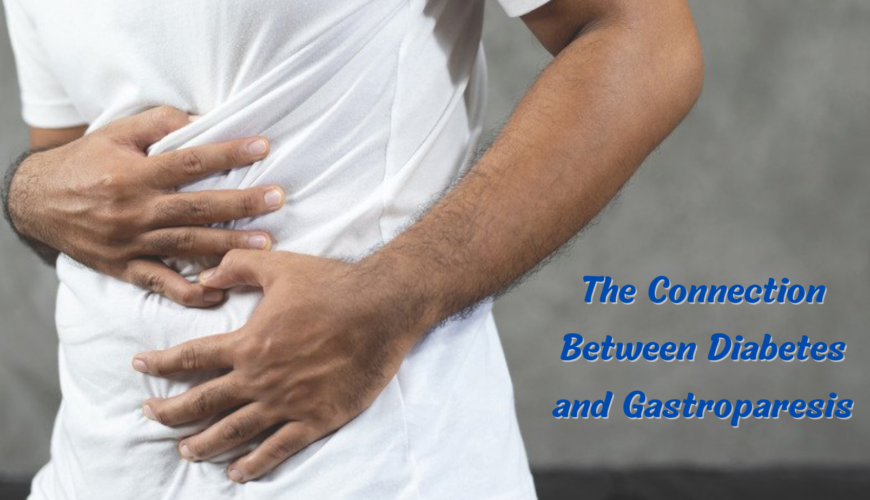While many people with type 1 or type 2 diabetes experience delayed gastric emptying — the rate at which food moves from the stomach to the intestine — a diagnosis of gastroparesis is slightly more uncommon. Gastroparesis is a condition in which the stomach muscles underperform or don’t work at all, leading to delayed gastric emptying. Although diabetes is the most commonly known cause of gastroparesis, many go undiagnosed due to the criteria that is currently considered necessary for a diagnosis. To be diagnosed, a patient must experience delayed gastric emptying a well as other moderate to severe symptoms of digestion. These symptoms include abdominal pain, bloating, and feeling full shortly after starting to eat. Gastroparesis may lead to poor nutrition, difficulty measuring blood sugar levels, and an overall poor quality of life, so it is important for people with diabetes to mention any digestive issues to their doctor. To get a better idea of the symptoms, a doctor might ask if the patient is:
- Unable to finish a meal
- Feeling full shortly after beginning to eat
- Feeling full for an extended period of time after a meal
- Experiencing abdominal pain, nausea, vomiting, heartburn, bloating, and/or lack of appetite
If these symptoms are present and the doctor suspects gastroparesis may be the cause, he or she will call for additional tests, such as a gastric emptying breath test, to measure the rate at which the stomach is emptying. If these tests show that the stomach is emptying slowly, they may also perform an upper gastrointestinal endoscopy to make sure nothing is physically blocking food from moving from the stomach to the intestine.
Gastroparesis can severely affect a person’s quality of life, especially those with diabetes. Blood glucose levels impact stomach emptying and vice versa. In addition, some studies have shown that the risk for gastroparesis increases in people with high blood sugar levels. On the other hand, managing blood sugar levels may be more difficult for those diagnosed with gastroparesis. There are, however, effective treatment options for those living with gastroparesis such as limiting fat and fiber intake, eating soft foods such as mashed potatoes, and taking medications to lessen nausea. For those with diabetes, a doctor may recommend adjusting the timing of insulin or other diabetes medications to allow for better absorption.
If you or someone you know has been diagnosed with gastroparesis, consider a clinical trial with Preferred Research Partners in Little Rock, Arkansas. You may be eligible for treatment at no cost to you and contribute to the advancement of medical research. Learn more to see if you qualify!

